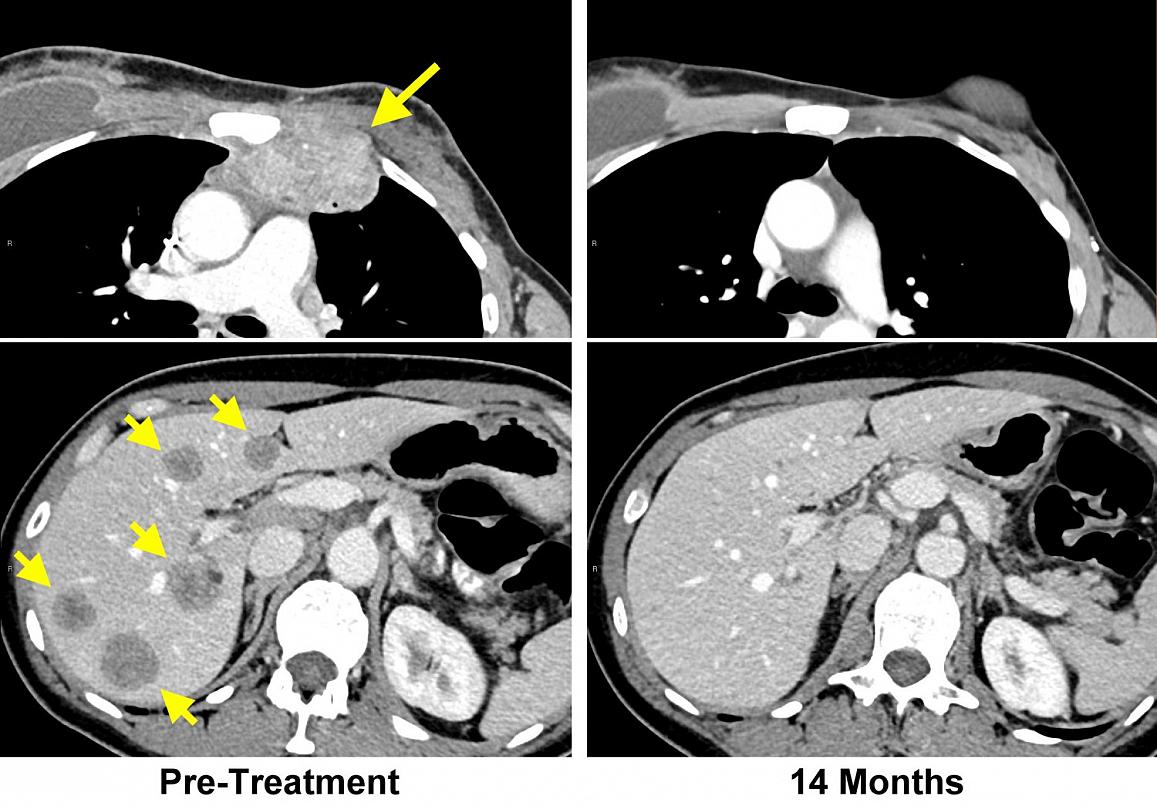New approach to immunotherapy leads to complete response in breast cancer patient unresponsive to other treatments
A novel approach to immunotherapy developed by researchers at the National Cancer Institute (NCI) has led to the complete regression of breast cancer in a patient who was unresponsive to all other treatments. This patient received the treatment in a clinical trial led by Steven A. Rosenberg, M.D., Ph.D., chief of the Surgery Branch at NCI’s Center for Cancer Research (CCR), and the findings were published June 4, 2018 in Nature Medicine. NCI is part of the National Institutes of Health.
“We’ve developed a high-throughput method to identify mutations present in a cancer that are recognized by the immune system,” Dr. Rosenberg said. “This research is experimental right now. But because this new approach to immunotherapy is dependent on mutations, not on cancer type, it is in a sense a blueprint we can use for the treatment of many types of cancer.”
The new immunotherapy approach is a modified form of adoptive cell transfer (ACT). ACT has been effective in treating melanoma, which has high levels of somatic, or acquired, mutations. However, it has been less effective with some common epithelial cancers, or cancers that start in the lining of organs, that have lower levels of mutations, such as stomach, esophageal, ovarian, and breast cancers.

Left: MRI scans of a woman with breast cancer before TIL therapy show a lesion invading the chest wall (top) and metastatic lesions in the liver (bottom). Right: Scans 14 months after treatment show all lesions have disappeared.
This page was last updated on Friday, January 21, 2022